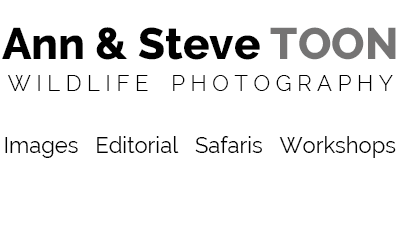Supremely photogenic, slinky, regal cheetah can nevertheless be the trickiest of the big cats to photograph well. Built lean and long for explosive speed it requires reflexes and shutter speeds as lightning fast as their own to hold focus and track one of these daytime hunters as it chases down its dinner. That long muscular tail, brilliant for stability and steering when an antelope suddenly jack-knifes to escape, is all too easy to clip when following at pace and can even be an issue when your subject’s static if you don’t watch out.

Then there’s that beautiful camo. Bedecked in chocolate polka dots to blend perfectly into the surrounding habitat, cheetahs can be tough to pull clear of the background in your shots. As diurnal predators they have heavy black ‘eyeliner’ and doleful tear-stripes to make staring into the sun when searching for prey as simple as donning a pair of shades. Striking markings – but a headache for the photographer, especially when you’re operating in harsher than ideal lighting. Once the sun’s up it can be difficult to bring out those huge amber eyes to good effect.

They’re flatter than a steamrollered pancake when lying prone in dappled shade so there’s not much you can do at all with a resting cheetah. Gone is all that athletic elegance that drew you to them in the first place. Exposure often needs a bit of tweaking outside the golden hours too and we often find ourselves relying on a dab or two of exposure compensation on the minus scale to stop their lighter fur from burning out.

And that’s if you can find one in the first place; given their vulnerable conservation status and the fact these wide-ranging creatures live at low densities across most of their range. Cheetah need to be supreme champions at keeping a low profile in order to survive where other large carnivores might out-compete them, and in the case of lions, kill their cubs or themselves.

Despite, or perhaps because of all this, the beautiful but beleaguered cheetah is a personal favourite of ours. Which is why we’re thrilled that one of our cheetah shots has been selected for inclusion in a new wildlife photography coffee table book spotlighting these stunning creatures under the acclaimed ‘Remembering Wildlife’ banner. It’s given us the chance to dip down into our cheetah portfolio and relive, and linger over, some exciting and memorable moments we’ve had the privilege to experience following cheetah in the field – a few of which we’re posting here.

‘Remembering Cheetahs’, scheduled to be published later this year, will be the fifth photo book in the popular series that’s showcased and successfully supported some of the world’s most iconic yet threatened wildlife species. (We also previously contributed to the titles on elephants and rhinos). Using images donated by leading photographers from around the globe including Art Wolfe, Thomas Mangelson, and Frans Lanting to name just a few, it’s proved an excellent opportunity for wildlife photographers, normally working apart and independently, to unite in support of conservation. All profits from the book sales and surrounding launch event will be ploughed back into grass-roots cheetah conservation.

It’s great news, particularly at a time when our attention is pulled in other directions, that the fund-raising campaign underpinning the ‘Remembering Cheetahs’ book project has to date raised more than £129,000 – way above the original total set by founder, and creator, Margot Raggett. But there’s no reason to stop there…

Struggling to find space in our crowded world, entangled in the web of human-wildlife conflict, persecuted, under pressure, and with poor genetic diversity to withstand such knocks, cheetahs remain an exceptionally vulnerable big cat requiring complex conservation interventions.
If you’d like to help them you can register for your copy of the ‘Remembering Cheetahs’ book or simply find out more about this innovative photo book series and wildlife campaign.


